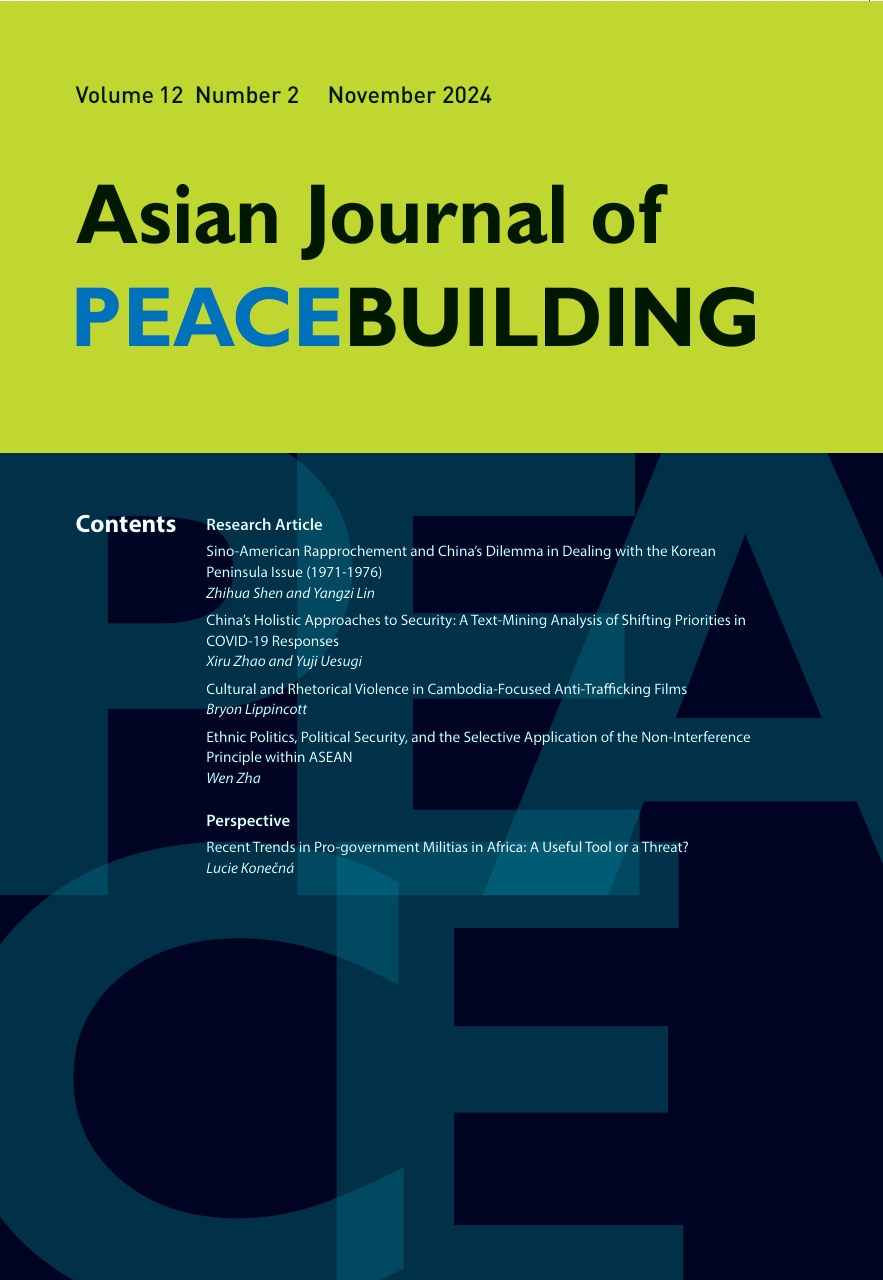Under what conditions do member states of the Association of Southeast Asian Nations (ASEAN) comply with or deviate from the non-interference principle? And how would intervention affect the regional norm of non-interference? Few studies address these questions from the perspective of ethnicity. This article argues that a state’s domestic political competition along ethnic cleavages may drive it to intervene in another state’s ethnic conflict. Whether this intervention undermines the non-interference principle depends on the target state’s response: politically secure leaders may accept it, while insecure leaders are likely to resist. Such interaction between states can affirm, violate, or transcend the ASEAN principle of non-interference. This theoretical proposition is tested with three state dyads: Thailand-Myanmar, Malaysia-Thailand, and Malaysia-Philippines.
Back Issues
Research Article
Ethnic Politics, Political Security, and the Selective Application of the Non-Interference Principle within ASEAN
Wen Zha pp. 231-255 doi: 10.18588/202411.00a523
PDF Download

